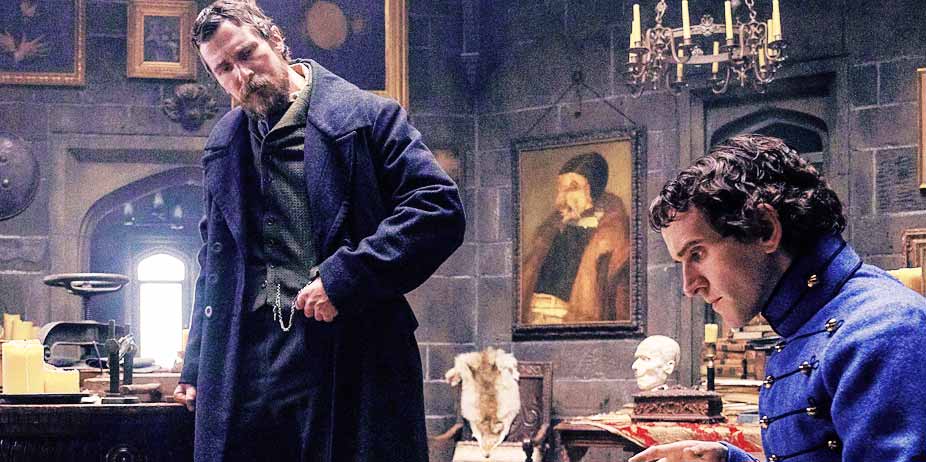
The Pale Blue Eye (2023)
Since I’ve never read the book that inspired this Victorian mystery, I wasn’t sure what to expect from The Pale Blue Eye. It’s a slow-moving film full of masterful performances and a wicked twist at the end, but never quite managed to engage me emotionally.
After a young cadet is found hanging in a tree, the local military authorities call in Augustus Landor (Christian Bale) to investigate the matter, since they expect him to be more discreet than the police. His nosing about in search of who might have murdered this boy causes him to befriend Edgar Allan Poe (Harry Melling), an odd but charming and talented young poet with a thirst for the dark side of life. Their investigation causes them to meet all kinds of peculiar people, and in the process of unraveling the mystery, Poe has his heart stolen by the daughter of a the military doctor (Lucy Boynton). But when more cadets show up murdered and later, dismembered in odd ways (their hearts have gone missing), Landor starts to think there’s something dark, twisted, and possibly quite… evil happening.
This is a peculiar movie full of incredibly talented people; you’ve seen all of them before, either on British television or in Harry Potter. It is a dark Victorian tale that strays into the supernatural (or, at least, a “cult” whose members may believe they can cure their illnesses by consuming human hearts). I admit, Harry Melling is sensational as Poe. He has the right “strangeness” for the awkward poet who writes morbid limericks in his spare time, and it’s surreal to see him be so likable after playing the truly heinous Dudley Dursley in his younger years. His friendship with Landor is meaningful and charming, even though it takes a surprising twist. And if the movie were just about the pair of them, it would be more moving than it is—but for whatever reason, I found the setting (a remote military encampment in the dead of winter) to be forgettable. Had they planted this in a place full of cobblestone streets, I might have felt more engaged.
Gillian Anderson gives an unhinged performance as a mentally unstable wife, and Robert Duvall has a brief and almost unrecognizable cameo. The costumes and sets are magnificent; this is an eerie movie full of shadows, bluish snow under the light of a full moon, secret sects, and untrustworthy characters. I really wanted to like it more than it did, and it may grow on me with subsequent viewings; the twist did catch me off guard, even though I suspected the reason for the murder midway through the running time. It’s worth watching once for its leading performances, even though it left me feeling a bit cold.
Sexual Content:
Landor sleeps with a woman he isn’t married to; they are
shown in the same bed several times. Poe quotes a dirty poem he wrote to a bunch
of cadets to earn their favor. Spoiler: We find out through a flashback that a
female character was gang-raped. We see the men grabbing her, holding her down,
and one of them unbuckling his pants. She then is shown in a later scene, her
dress all torn, and crying as she runs into her father’s arms. A policeman
mentions damage to a corpse’s genitals. Violence: Language: Other:
Language:
Scattered uses of damn, hell, one f-word.
Violence:
Flashbacks show men being murdered—strangled for
information, beaten over the head, and strung up;
corpses have had their hearts removed. Some blood. We
see a dead sheep nailed to a tree. Three people kidnap
and intend to murder a young man by stabbing him through
the heart. Two people are killed when a barn catches
fire and fiery beams collapse on top of them.
Other:
Mentions of witchcraft and the occult; a cult which believes it can heal its maladies through consuming human hearts.
